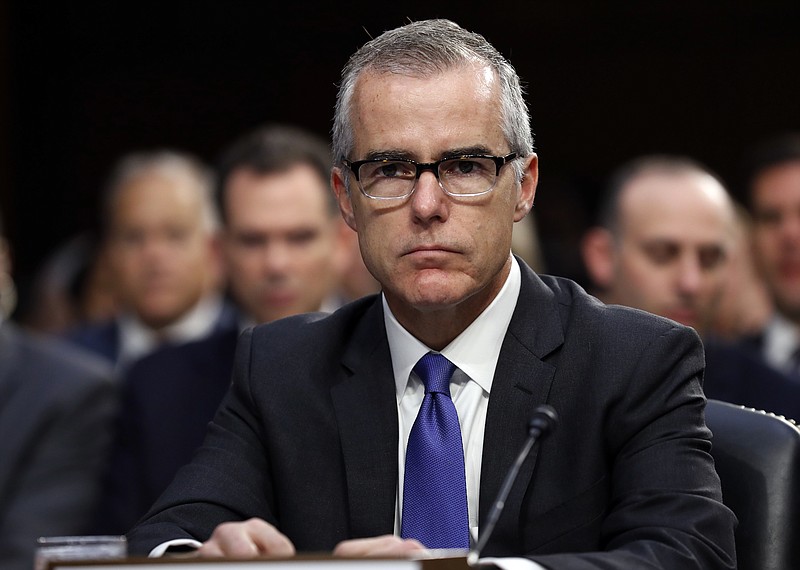The irony couldn't be more brutal.
With the Steven Spielberg movie "The Post," which portrays the Washington Post's fight to release the government-held Pentagon Papers, still playing in theaters, the Post and other left-wing media on Friday railed against the release of a congressional memo which details the partisan efforts government officials used to discredit then-presidential candidate Donald Trump.
The Post editor wrote weakly on Thursday that the paper is "not in the business of opposing the release of information of potential public value," then went to explain why it was opposed to the release of the bombshell memo, which details how a widely discredited dossier on Trump was relied upon by the FBI and the Department of Justice to get surveillance warrants to spy on a volunteer worker in the now-president's campaign.
The Pentagon Papers was a classified history of the U.S. involvement in Vietnam from 1945 to 1967 that was released to The New York Times by former U.S. military analyst Daniel Ellsberg, despite threats of lawsuits to the newspaper and eventual charges - later dismissed - of conspiracy, espionage and theft of government property against Ellsberg.
James Goodale, a Times in-house counsel at the time, convinced originally skeptical Times colleagues that the press had a First Amendment right to publish information significant to the people's understanding of their government's policy.
Because the information in the current congressional memo shows the FBI, the Obama administration and the Hillary Clinton presidential campaign to be seemingly collaborating to ruin Trump, the Times has no use for its publication, calling it "a partisan witch hunt," "a demonstration of unbridled self-interest and bottomless bad faith" and a "cut-and-paste job."
Most significantly, though, the memo quotes Andrew McCabe, the former FBI deputy director who unexpectedly resigned Monday, as testifying in December 2017 that the warrant to spy on the campaign volunteer - Carter Page - would not have been obtained without the dossier on Trump.
The dossier had been compiled by British spy Christopher Steele, who was "desperate" to prevent Trump's election and given to Fusion/GPS, a liberal research firm working with the Clinton campaign. However, the Foreign Intelligence Surveillance Act (FISA) court that had to approve the warrant wasn't told of the partisan nature of the dossier.
On the basis on the dossier (for which the FBI authorized payments to Steele) and, curiously, newspaper reports on Page, the FISA court approved the initial warrant and three renewals of it.
"The dossier compiled by Christopher Steele (Steele dossier) on behalf of the Democratic National Committee (DNC) and the Hillary Clinton campaign formed an essential part of the Carter Page FISA application," the memo reads. "Steele was a longtime FBI source who was paid over $160,000 by the DNC and Clinton campaign, via the law firm Perkins Coie and research firm Fusion GPS, to obtain derogatory information on Donald Trump's ties to Russia."
U.S. Rep. Devin Nunes, R-Calif., the chairman of the House Intelligence Committee who compiled the memo, called its contents "serious violations of the public trust."
"Our intelligence and law enforcement agencies exist to defend the American people," he said, "not to be exploited to target one group on behalf of another."
Democrats breathlessly attempted to shift the seriousness of the release to a partisan attempt to distract from special counsel Robert Mueller's investigation of any Russian collusion with the Trump campaign in the presidential election. To date, none has been found.
Trump, after meeting with advisers, approved the memo's release, despite suggestions earlier this week by current FBI Director Christopher Wray not to release the memo because it would give those who read it an inaccurate picture of the agency.
The president called the abuses detailed in the memo "terrible" and said "a lot of people should be ashamed of themselves."
Democrats argued earlier in the week against the memo's release because they claimed it would endanger national security and the rule of law. However, national security doesn't appear to be threatened by what the memo reveals, unless one believes the FBI can be weakened overall because of abuses by some of its officials.
On the contrary, we believe most FBI agents are straightforward in their jobs and only want to protect the country. Unfortunately, it appears some officials, perhaps with the urging of the Obama administration and Clinton campaign that already had taken sides against Trump, got caught up in introducing partisan politics in what should be a nonpartisan job. We hope such abuses will be investigated as thoroughly as the current Mueller probe has into any Russian collusion in the 2016 campaign.
And we would hope the Post, the Times and other left-wing papers come to understand that information important for the people's understanding of their government in 1971 is no less important in 2018.
